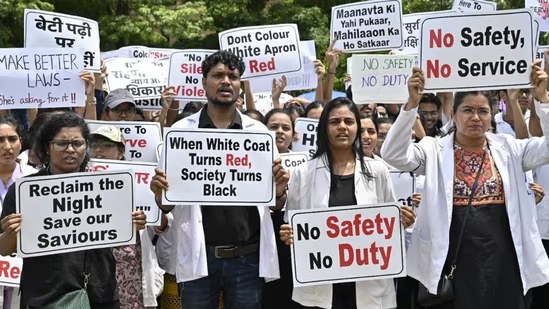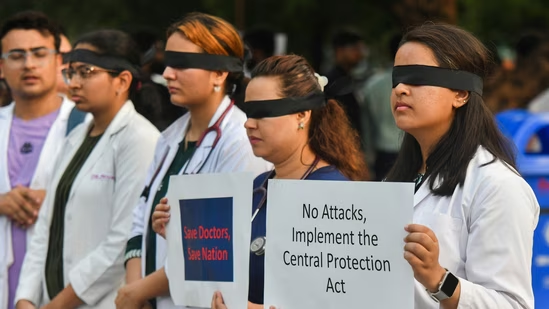In a tragic incident that should rightfully spark widespread outrage, a 17-year-old boy behind the wheel of a speeding Porsche in Pune killed two motorists. Although locals were able to nab the juvenile driver and his co-passenger (one more escaped), shockingly enough he was granted bail just 15 hours after his arrest.
The minor’s lawyer, Prashant Patil, who spoke to the press about the incident, stated that bail was granted on several “conditions”, including:
1) Working with traffic police for 15 days
2) Writing an essay on accidents
3) Undergoing treatment for his drinking habit
4) Attending counselling sessions
NDTV reported that the juvenile accused, the son of a prominent Pune realtor, was returning from a pub where he had been celebrating the completion of his Class 12 exams.
Twenty-four-year-olds Aneesh Awadhiya and Ashwini Koshta, both engineers from Madhya Pradesh, were returning home on a bike after a get-together when the Porsche, reportedly driving at over 200 km per hour and lacking number plates, collided with them. It is unclear whether the victims were wearing helmets at the time. (Note: It is not mandatory for motorists to wear helmets in Pune)
Eyewitnesses described a horrific scene to the police and media: They claimed Ashwini was thrown 20 feet into the air, landing with a fatal impact, while Aneesh was hurled against a parked car and succumbed to his injuries on the spot.
The accident occurred around 2:15 am, and the driver attempted to flee but was caught and allegedly thrashed by locals after the car’s airbags deployed, obscuring his vision. The police arrived within 15 minutes and promptly arrested the minor. Following a complaint by a friend of one of the victims, an FIR was filed under sections relating to death by negligence and rash driving.
The Pune Police Commissioner, Amitesh Kumar, has since confirmed that the police will appeal the bail order and push for the minor to be tried as an adult due to the heinous nature of the crime. But it remains to be seen whether the Court will pay heed to the appeal.
Also read: Rottweiler attack in Chennai
Juvenile Crime and Punishment
The urgency to grant bail in such a grievous case raises serious questions about the efficacy and message of our juvenile justice system. While the conditions of bail — working with traffic police, writing an essay, and attending counselling—might appear educational, they pale in comparison to the gravity of the offence. The message being conveyed is troubling: minors involved in severe crimes can expect minimal consequences, thereby fostering a sense of impunity.
This case is not isolated; it is a part of a disturbing trend where minors engage in reckless and violent behaviour, fully aware that the legal system’s leniency towards juveniles will protect them from severe repercussions. This leniency, though rooted in the belief of rehabilitation over punishment for minors, must be re-evaluated in light of growing instances of minors committing adult-like crimes with blatant disregard for law and human life.
The Trend of Minors Committing Heinous Crimes
Globally, there have been several cases where lenient laws for minors have led to disastrous outcomes. In India, the infamous 2012 Delhi gang rape case saw one of the perpetrators being a minor, who, despite his active participation in the brutal crime, received a much lighter sentence than his adult counterparts.
The Shakti Mills Gang-Rape Case
In 2013, a photojournalist was gang-raped by five individuals in the abandoned Shakti Mills compound in Mumbai. One of the accused was a minor. The case drew national attention not only for its brutality but also because it occurred in a major metropolitan city. The minor, who had a history of criminal behaviour and had previously been involved in other offences, was sentenced to only three years in a juvenile detention centre, the maximum punishment under the Juvenile Justice Act. Despite his repeat offences, the juvenile system’s leniency allowed him to evade the harsher penalties faced by his adult accomplices.
The Ryan International School Murder Case
In 2017, a seven-year-old boy was found murdered in the washroom of Ryan International School in Gurugram. Initially, a school bus conductor was arrested, but further investigations revealed that a 16-year-old student was responsible for the crime. The teenager had allegedly committed the murder to postpone an upcoming examination and a parent-teacher meeting.
Despite the premeditated nature of the crime and the public outcry for severe punishment, the juvenile was initially protected under the lenient provisions of the Juvenile Justice Act. It was only after significant legal battles and public pressure that he was ordered to be tried as an adult, highlighting the loopholes in the system that often shield minors from appropriate consequences.
Similarly, in the United States, Ethan Couch, known for the “affluenza” defence, killed four people while driving under the influence and received probation instead of prison due to his young age and purported lack of understanding of consequences due to his affluent upbringing. Just how preposterous is that? Before his sentencing, (he only ended up serving 2 years) Ethan’s attorneys had argued that Couch had “affluenza” and needed rehabilitation instead of prison, meaning he had no understanding of boundaries because his affluent parents had never given him any. How is that an excuse for running people over in a drunken state in the middle of a busy street?
These cases illustrate a dangerous precedence where minors, especially those from privileged backgrounds, exploit legal loopholes and societal leniencies. The current laws, designed with the best intentions of juvenile reform, often fail to serve justice or deter future offences.
The Need for Reform
The Pune incident underscores the urgent need for legal reforms that address the increasing involvement of minors in serious crimes. While rehabilitation should remain a cornerstone of juvenile justice, there must be a balance that ensures accountability and deterrence. For crimes of such severe nature, treating minors as adults might not only be appropriate but necessary to uphold justice and public safety.
Lawmakers and society must reconsider the thresholds for juvenile crimes and the corresponding punishments. It is crucial to implement stringent measures for grave offences, ensuring that young offenders comprehend the seriousness of their actions and the legal consequences. This includes stricter enforcement of existing laws, comprehensive education on road safety and legal consequences, and robust interventions to address the root causes of juvenile delinquency.
The tragic deaths of Aneesh Awadhiya and Ashwini Koshta serve as yet another grim reminder of the consequences of lenient juvenile laws. As the Pune Police continue their investigation and appeal against the bail order, it is a pivotal moment for society to reflect on the adequacy of our juvenile justice system. The aim should not just be punitive but also preventive, ensuring that no family has to endure such heart-wrenching loss due to a legal system that inadvertently shields serious juvenile offenders. The balance between rehabilitation and accountability must be recalibrated to address the evolving dynamics of juvenile crime in contemporary society.



